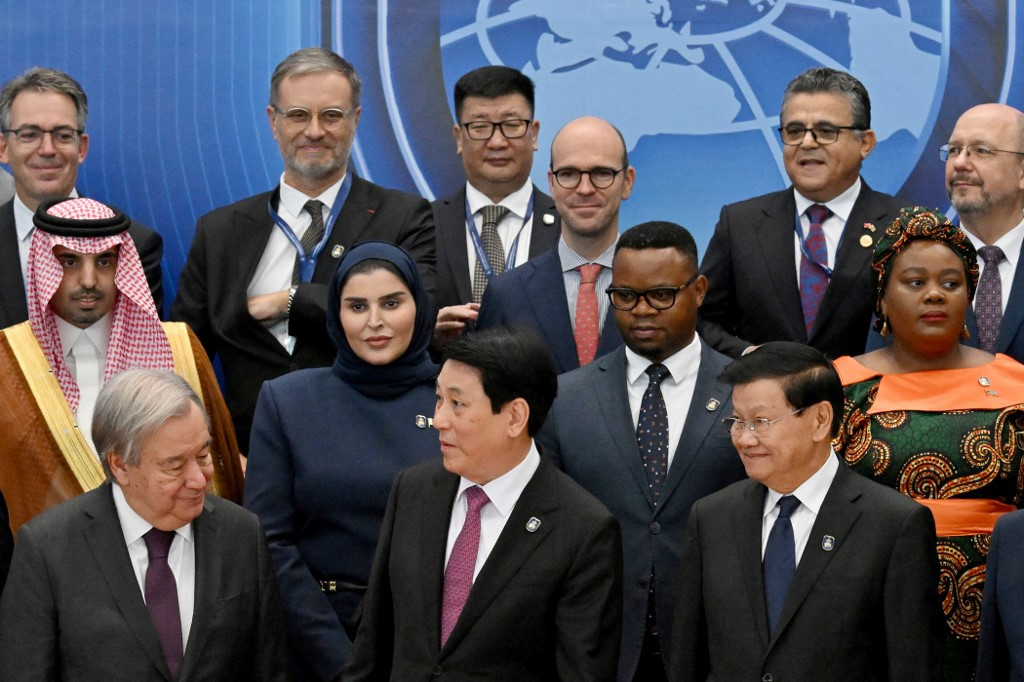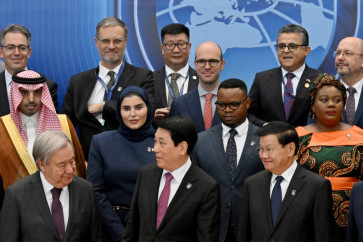Popular Reads
Top Results
Can't find what you're looking for?
View all search resultsPopular Reads
Top Results
Can't find what you're looking for?
View all search resultsStopping the threat of organized cybercrime
We need to strengthen legal and regulatory frameworks around the world, provide training and equipment to enforcement agencies and promote cross-border cooperation.
Change text size
Gift Premium Articles
to Anyone
 United Nations secretary-general António Guterres ('front left'), Vietnam's President Luong Cuong ('front center') and Laos' General Secretary and President Thongloun Sisoulith ('front right') pose with other leaders and delegates at the signing ceremony of the UN Convention on Cybercrime in Hanoi, Vietnam on Saturday. (AFP/Nhac Nguyen)
United Nations secretary-general António Guterres ('front left'), Vietnam's President Luong Cuong ('front center') and Laos' General Secretary and President Thongloun Sisoulith ('front right') pose with other leaders and delegates at the signing ceremony of the UN Convention on Cybercrime in Hanoi, Vietnam on Saturday. (AFP/Nhac Nguyen)
O
rganized crime has long been one step ahead of law enforcement. Modern transnational organized crime groups are dynamic and increasingly decentralized, operating through flexible structures across borders while making and laundering vast profits.
Cybercrime has given organized crime groups an exponentially greater advantage.
By misusing technology, crime groups can operate from the city or country where they are least likely to get caught and carry out operations in the places they are most likely to profit, faster than ever before, at a scale previously unimaginable.
Cybercriminals exploit digital systems through malware, ransomware and hacking to steal money, data and other valuable information. Or they use technology to facilitate other “traditional” crimes, like trafficking, money laundering and fraud. And they are selling code and services to the highest bidders.
Online child sexual exploitation through social media, ransomware shutdowns of hospitals, fatal cocktails of illicit substances bought anonymously on a dark market: these are just some of the many facets of transnational organized crime today.
Organized crime groups are on the forefront of technology adoption. For example, a United Nations Office on Drugs and Crime (UNODC) research has documented how scam compounds are integrating artificial intelligence (AI) into their operations, combining multilingual chatbots and automated outreach to target victims worldwide for fake romance and investment scams, while using cryptocurrency to launder criminal proceeds.
The next generation of cyber organized crime is here, and the world is not ready. While criminal models have seamlessly integrated new tech to bring down risk and maximize profit, responses across the globe remain fragmented and partial, and cybercriminals are exploiting vulnerabilities with devastating consequences. Vast seas of personal data stolen. Public systems and services debilitated. Life savings wiped out and businesses bankrupted by ransom demands. People exploited, robbed and killed.


















